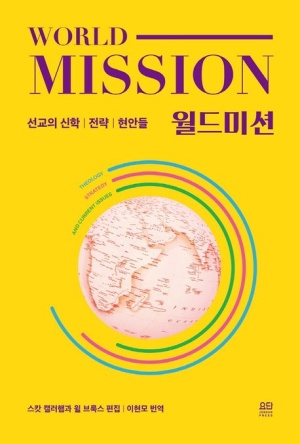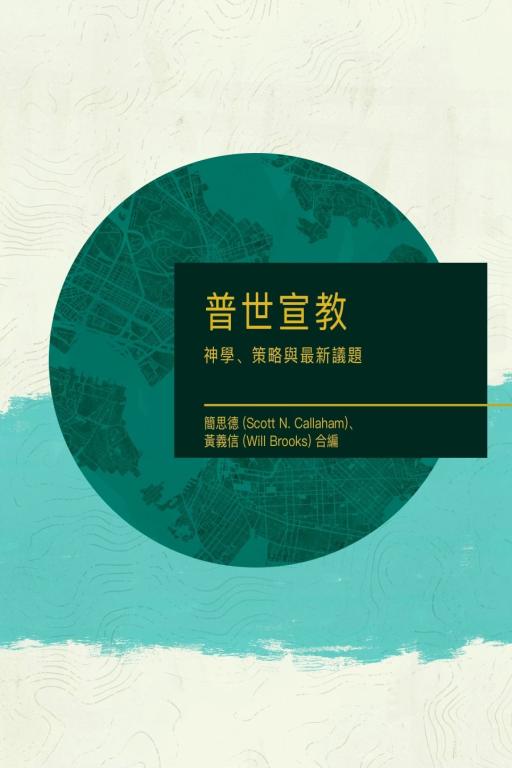Ironically, numerous missionaries minimize the importance of learning the local language at a high level. They settle for very basic conversation skills that enable them merely to rehearse canned gospel presentations.
I’ve written on this topic before (such as here, here, and here). It’s also the subject of one of Scott Callaham’s chapters in World Mission: Theology, Strategy, and Current Issues. World Mission was first published in 2019, then in 2022 it next came out in Korean. Now, to celebrate the coming publication of the Chinese version of World Mission on Logos in both simplified and traditional characters, I think it’d be helpful to revisit this topic by interviewing Scott today.
(BTW, Scott is an OT scholar, Hebrew grammarian, and the Dean of the Institute of Public Theology.)
Scott, over the years, you and I have spoken and written repeatedly about the importance of missionaries advancing their language skills beyond basic levels. We even had a podcast discussion about the topic. Why are you so passionate about this topic?
SCOTT:
I’m passionate about this topic because I have witnessed the consequences of neglect of missionary language learning on the field. Poor language learning broadcasts a fundamental disrespect for host nation peoples and their cultures. Worse still is the contempt for Great Commission work that long-term language weakness communicates.
Let me briefly justify that last comment. Simply put, missionaries are messengers. Their message is the word of God. The missionary who does not strive to communicate that message accurately, through the empowerment of the Holy Spirit who inspired it, may indeed be expending a heroic amount of effort doing something on the mission field. However, that “something” is just not the Great Commission.
BRAD:
It’s been interesting how well people responded to our previous podcast discussion (via podbean, YouTube) and your chapter in World Mission. What’s some of the feedback you’ve heard?
SCOTT:
Readers who obey the Great Commission cross-culturally outside of their home countries—missionaries—have received World Mission warmly. I’m also pleased that the Gospel Coalition recently posted Elliot Clark’s “An Introductory Reading List on Missions,” in which he places World Mission at the top of the “Contemporary Missiology” section.
As for the “Language and World Mission” chapter of World Mission specifically, the only negative response I’ve received so far is from the originator of a current missionary language learning method. In the chapter (p. 235), I point out that his approach is controversial and unsupported by majority findings of research in theoretical linguistics and second language acquisition. That assertion proved to be a bit of a sticking point in our conversation.
Even so, much more important than research findings is whether missionaries ground their labors in sound biblical theology. The chief plea of the “Language and World Mission” chapter is that missionaries implement language learning strategies that drive toward the goal of communicating the word of God.
BRAD:
What do you think are some factors that lead missionaries and mission organizations to neglect higher-level language training (especially in East Asia, where you and I have experience)?
SCOTT:
From the beginning, I should mention that we are all children of our age, swept along by cultural currents that mold our value systems even at an unconscious level. Some tendencies stemming from our native Western value system do us no favors on the mission field. Specifically, we want maximal results in minimal time with minimal effort. Our “rush to results” manifests itself in a distaste for sustained training in both theology (the content of the missionary message) and language (the medium of communication of that message).
It’s time to turn away from these self-defeating urges.
Regarding theological training, many sending agencies task missionaries with church elder roles—namely church planting and mentoring church leaders—without requiring that they meet the qualifications of elders themselves. How many missionaries are “able to give instruction in sound doctrine and also to rebuke those who contradict it” (Titus 1:9) in English, let alone the language of a people group on the mission field?
Given the immense challenges of communicating cross-culturally and in a newly learned language, missionaries should be among the most theologically equipped contemporary Christians rather than the least.
You mention East Asia. The major East Asian languages of Chinese, Japanese, and Korean present formidable challenges to English speakers, and they call for particular attention to properly directed language learning.
BRAD:
What do you mean by “properly directed”?
SCOTT:
I say “properly directed” language learning because there needs to be a hard rudder shift in at least three areas to alter the course in which contemporary missionary language learning has been sailing.

Shift #1: Away from a desire for rapid “results” according to human-selected metrics and toward a trust in the Holy Spirit to use the missionary’s message as he wills, according to his timing and according to Scripture, to change hearts to accept the gospel for his glory alone.
Shift #2: Away from viewing language learning as something for new arrivals on the field to “get through” before real ministry begins and toward an embrace of lifetime language learning to maximize one’s usefulness on the mission field.
Shift #3: Away from “one size fits all” informal language learning methods that stress sharing one’s own life story and testimony in “street language” and toward more intentional and formal methods that include both oral and literary skills in order to effectively communicate the message of the Bible.
There’s much more we could say on missionary language learning, but for now, let’s pause and thank God that World Mission is now available in Chinese! You and I and the rest of the contributors dreamed of this day from our very first meeting in a hotel lobby in Thailand in 2015, and in God’s good graces it has happened at last.
May God use World Mission to glorify himself and to motivate biblically grounded Great Commission obedience in the worldwide Chinese church!
BRAD:
Amen, indeed.













